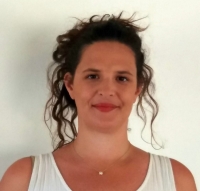Diverse groups in the population are currently underserved by the health system. They include people underserved due to their living conditions, particularly from a material perspective, their socio-economic instability, their social position (housing, employment, education, income), or their administrative position (administrative status, access to rights, health coverage). These difficulties reflect the fact that the health system, which is under great pressure, is poorly adapted to meet the specific needs of these populations.
These populations also face food insecurity, housing instability, discrimination, personal insecurity and, for some, language barriers, lack of social support and low health literacy. In addition, their reference point for health and physical well-being differs to that of the general population, meaning that the seriousness of disease can be underestimated.
In short, these populations suffer a triple penalty: greater exposure to the disease, lower adherence to prevention, and less use of care. Interventions that promote the use of care and prevention among these populations must seek to help services adapt while also supporting the individual’s capacity to make health-friendly decisions. They must also act on the structural determinants of health, for example by developing schemes for sustainable access to quality housing, employment, healthy food and education, or by fighting against discrimination and exclusion.
Health mediation is one such intervention. To date, no study has evaluated the effectiveness of health mediation and the conditions for its effectiveness.
The article just published in BMJ Open [1] analyses the conditions for effective mediation in health based on a scoping review of the literature.
3 questions for Elodie Richard1 and Stéphanie Vandentorren, Scientific and International Department, Santé publique France


Health mediation refers to the interface between people who are underserved by the health system and the professionals concerned by their problems (social workers, health professionals, government services, elected representatives, etc.). It aims to facilitate access to prevention and care for people with one or more factors of social vulnerability: geographical, family or social isolation, practices or behaviours that put health at risk, legal or personal situation unfavourable to health, economic or administrative insecurity, lack of knowledge of the French health system, language or technology barriers, low level of health literacy, victims of discrimination.
It articulates individual and/or collective actions around information, education, communication (i.e. “Doing with”) and health system navigation (i.e. “Reaching out” and “Bringing in”), and also includes a branch of mediation supporting active mobilisation, commitment and collaboration between local stakeholders themselves, as well as between populations and these stakeholders.
Health mediators may or may not come from the population being supported, but they will have acquired legitimacy through detailed knowledge of their territory, of the problems encountered by the population and of the local stakeholders.
Health mediation serves to strengthen people’s capacities and support them in overcoming obstacles by developing their power to act on their care pathway. It can also help to reveal unmet social needs and the failings of a system that is not adapted to everyone, and to bring these to the attention of institutions and stakeholders so that health programmes can be tailored to suit the specific characteristics of these populations. Finally, it enables the development of access schemes (rights, housing, employment, education) and helps to fight against inequalities in access to care and prevention, as well as against discrimination and social exclusion.
Health mediation is a promising approach in which health mediators play a pivotal role, employing their knowledge of the health system to guarantee the health rights of people in vulnerable situations.
Health mediation practices are multiform despite the common grounds for intervention which form a reference framework within the National Health Authority (HAS, Haute autorité de santé). The approach must combine various practices in order to adapt to different populations and shifts in social context. It is an interventional system2. According to this systemic approach, we have mapped the conditions for the success and feasibility of health mediation within a conceptual framework of interrelationships.
In the first version of the health mediation conceptual framework, the contextual conditions of success and feasibility (i.e. factors external to the mediation intervention and which drive it) form the macro-system. These are political and financial commitment, the possibility to act on structural and intermediate determinants of health, and the security of the health mediator in his or her activity.
The specific conditions for the intervention’s success and feasibility are the principles of otherness, universalism with a holistic vision of health, interfacing functions, and intersectoriality within a locally anchored network. Then comes the process of formalising actions in plans with adequate means and health mediation schemes that correspond to the ethical principles of all mediation according to Faget J.3: reaching out/bringing in, doing with, being together and doing together.
The conditions linked to the health mediator are a benevolent, listening attitude, great mental flexibility, perseverance while being congruent with oneself, a position of trust, of non-judgement and of power sharing, and a capacity for positive feedback, as well as a strong interdependence between the health mediator, the local stakeholders and the population.
The next steps to enable the implementation of health mediation are crucial because health mediation is a cyclical process combining transmission and emancipation from the individual to the societal level. These interventions are carried out among people who have a perception of limited control over their environment with a view to developing their power to act; mediation must therefore target the structural determinants of health in order to obtain an effect, particularly among those underserved by the health system. Acting on access to rights, access to and maintenance of housing, healthy food, education and employment are all levers that enable the use of care and prevention.
There are still many steps to take to facilitate the implementation of mediation on a large scale. An important step is evaluation, i.e. identifying and funding promising interventions for evaluation, promoting research into evaluations that use effectiveness criteria, and accompanying and supporting research in this area. A second key step is to secure the professional framework of the health mediator. The funding and job security of health mediators are important elements in ensuring the recognition and legitimacy of this profession among other professionals working in the social and health sectors. A recognised framework for training that is professionalising and that integrates the elements of effectiveness highlighted in research would allow for better recognition of the practices and actions carried out by health mediators.
Santé publique France has initiated and supported research on health mediation with the University of Bordeaux. A special feature in the journal La Santé en action is available to professionals; it contains numerous contributions from researchers and practitioners sharing their knowledge and experience in this field. The agency also supports and finances actions to develop skills and share practices across the mediator network, as within the framework of the national programme for health mediation led by the FNASAT, as well as health mediation evaluations (IKAMBERE project). At territorial level, in June 2022, the Provence-Alps-Côte-d'Azur Regional Health Agency (ARS PACA) chose to support a pilot health mediation project carried out by two associations, Sept and Corhesan, working in the most disadvantaged neighbourhoods of Marseille (see box).
Health mediation for vulnerable populations in Marseille
This health mediation project for vulnerable populations in Marseille follows on from the health mediation programmes developed by associations in the context of the COVID-19 epidemic (Médilac programme). The health mediation interventions of the Marseille project started in October 2022. They focus primarily on cancer screening and vaccine-preventable diseases but can be extended to other health needs expressed by the people concerned or the opening of rights.
The evaluation of the project is being carried out within the framework of a partnership between Santé publique France, the ARS PACA, the National Health Insurance Fund, a joint research unit (UMR SESSTIM) and the two local associations, Sept and Corhesan. Its main objective is to evaluate the effectiveness of field interventions by measuring their impact on the level of vaccination coverage and the level of screening. The evaluation covers several areas:
- Process evaluation (routine collection of activity and performance indicators)
- Quantitative evaluation to provide evidence of the effect of interventions
- Qualitative evaluation
The quantitative evaluation has three components:
- Repeated cross-sectional surveys assessing vaccine hesitancy and knowledge/attitudes/practices regarding cancer screening
- An ecological survey measuring reimbursements for health care procedures at the IRIS level (aggregated geographical units for statistical information)
- A cohort survey assessing the performance of individual health care procedures
These three surveys will be carried out using a "before-and-after" method in the neighbourhoods benefiting from the interventions and a "here-and-away" method that compares the neighbourhoods targeted by the interventions with control neighbourhoods.
Article reference:
[1] Richard E, Vandentorren S, Cambon L. Conditions for the success and the feasibility of health mediation for healthcare use by underserved populations: a scoping review. BMJ Open 2022;12:e062051. doi: 10.1136/bmjopen-2022-062051.
Other references:
1 This work was carried out within the framework of a Public Health thesis supported by a CIFRE agreement between the University of Bordeaux and the FNASAT, supervised by Stéphanie Vandentorren (Santé publique France) and Linda Cambon (Chaire Prévention ISPED, Centre Inserm U1219, BPH, University of Bordeaux, CHU de Bordeaux). This work was financially supported by the National Cancer Institute and Santé Publique France.
2 Cambon L, Terral P, Alla F. From intervention to interventional system: towards greater theorization in population health intervention research. BMC Public Health. Dec 2019;19(1):339.
3 Faget J. Médiations : les ateliers silencieux de la démocratie. ERES. 2015;304.
For more information on health mediation (French only):
- HAS. La médiation en santé pour les personnes éloignées des systèmes de prévention et de soins [Health mediation for people underserved by prevention and care systems]. 2017;70
- La médiation en santé : un nouveau métier pour lever les obstacles aux parcours de soin et de prévention [Health mediation: a new profession that removes barriers to care and prevention]. La Santé en action. N°460 - June 2022. 52p.